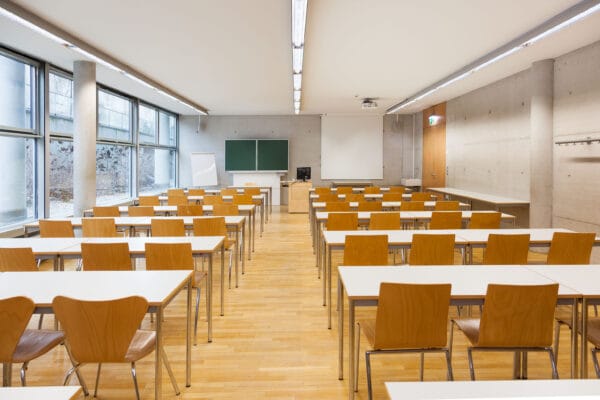
NAME:
SOWI - UR 3
BUILDING:
SOWI
FLOOR:
-1
TYPE:
Seminar Room
CAPACITY:
70
ACCESS:
Only Participants
EQUIPMENT:
Beamer, PC, WLAN (Eduroam), Overhead, Flipchart, Blackboard, Handicapped Accessible, LAN
Prato Valentino 2050 project, led by Associazione Val.Te.Mo. in collaboration with Ge.S.Di.Mont. Research Center at the University of Milan (UNIMONT) and the Department of Sociology at the University of Milan Bicocca, aims to develop a long-term strategy for the sustainable transition of Prato Valentino, a small ski resort in the Italian Alps, facing increasing challenges due to climate change. Historically dependent on winter tourism, the area is experiencing declining snowfall and rising temperatures, necessitating a shift towards a more diversified, year-round tourism model. The project’s objectives include fostering a participatory co-creation process with local stakeholders to define a shared territorial vision for 2050, promoting sustainable outdoor and slow tourism alternatives, enhancing local socio-economic resilience. The project is developed by integrating expertise and best practices from international initiatives such as the Alpine Space TranStat project. The methodology follows a multi-phase approach: (1) data collection and analysis of environmental, economic, and tourism dynamics, (2) stakeholder network analysis and community mapping, (3) participatory workshops to co-design future scenarios, (4) formulation of an integrated strategic roadmap, and (5) communication and knowledge transfer through webinars, local events, and transnational collaborations. By fostering a science-based and community-driven approach, the project seeks to provide a replicable model for Alpine regions adapting to climate-driven transformations in the tourism sector.

We and use cookies and other tracking technologies to improve your experience on our website. We may store and/or access information on a device and process personal data, such as your IP address and browsing data, for personalised advertising and content, advertising and content measurement, audience research and services development. Additionally, we may utilize precise geolocation data and identification through device scanning.
Please note that your consent will be valid across all our subdomains. You can change or withdraw your consent at any time by clicking the “Consent Preferences” button at the bottom of your screen. We respect your choices and are committed to providing you with a transparent and secure browsing experience.